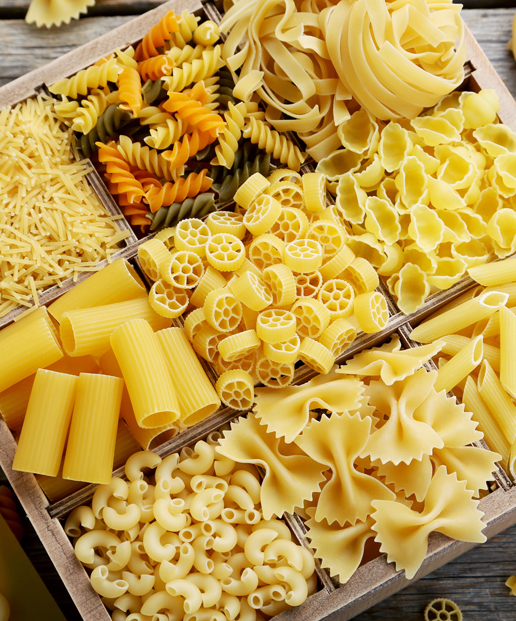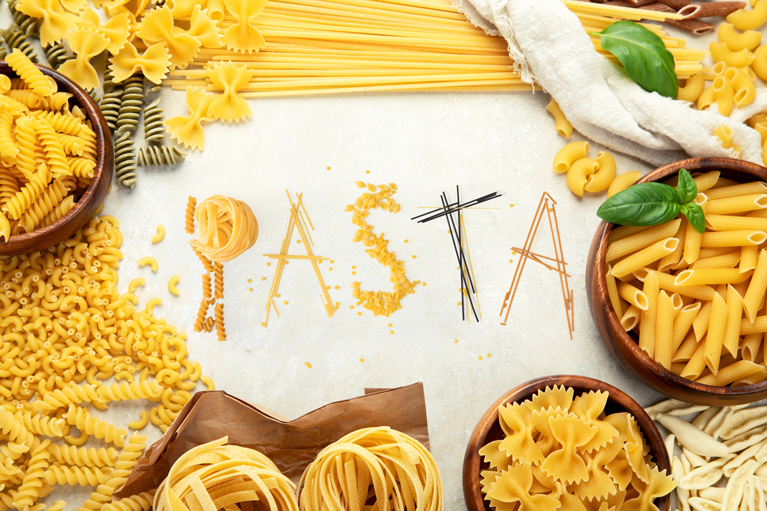Organic Pasta Types, Varieties and Health Benefits
Pasta, a staple with a rich history dating back to the earliest mentions of macaroni, ravioli, gnocchi, and vermicelli, has evolved significantly over the centuries. In the realm of pasta types, organic varieties stand out, made from durum wheat naturally grown without the use of pesticides or harmful chemicals, promising a healthier choice for consumers.
Organic Pasta Market
The organic pasta market is experiencing significant growth, driven by consumer demand for healthier, environmentally friendly options. Here’s an overview of the market dynamics:
- Market Valuation and Growth: The organic pasta market was valued at USD 505.14 million in 2021, with projections to reach USD 1106.66 million by 2029, showcasing a CAGR of 10.30% during the forecast period. This growth is attributed to the beneficial characteristics of organic pasta, including its clean label products.
- Trends: The organic pasta market is benefiting from several key trends, including the increasing demand for organic and natural products, expansion of product range and flavors, adoption of sustainable packaging solutions, and the rise of online retail. Global Organic Pasta Market

Exploring Organic Pasta Varieties

Exploring the diversity of organic pasta types reveals a world of culinary possibilities. The variety extends beyond the familiar shapes to include options for every dietary need and culinary application:
- Classic Shapes: Spaghetti, Penne, Fusilli, Macaroni, Linguine, Ravioli.
- Gluten-Free Options: Made from alternative grains such as Corn, Rice, or Quinoa, catering to those with gluten sensitivities.
- Artisanal Cuts: Including Organic Cavatappi, Organic Farfalle, Organic Capellini, and Organic Rigatoni.
Such diversity in organic pasta types not only caters to various dietary needs but also enhances the culinary experience, allowing for creative and healthy meal preparations.
Different Pasta Shapes
In the intricate world of pasta, each shape and size is meticulously designed to serve a specific culinary purpose.
Shapes and Uses:
- Long Cuts: Spaghetti and Linguine, ideal for lighter, thinner sauces due to their slender form. Spaghetti is particularly popular in the US, pairing beautifully with fish sauces.
- Short Cuts: Fusilli and Penne, known for their ability to hold weightier sauces, commonly featured in UK restaurants.
- Hollow Shapes: Rigatoni and Cavatelli, with their openings and crannies, are perfect for capturing chunky sauces and hidden bits of meat or vegetables.
- Flat Sheets: Lasagna, a wide, flat sheet, layered with meats, cheeses, and sauces, creates a luscious casserole.
- Regional Varieties: In Italy, pasta shapes vary significantly by region, influenced by local ingredients and traditions. Northern Italy favors soft wheat and potatoes, leading to gnocchi and heartier egg pasta varieties.
This diverse array of pasta shapes, from the traditional to the innovative, underscores the adaptability and creativity inherent in pasta-making, catering to a wide range of dietary preferences.
Organic Pasta and Health Benefits
Organic pasta, celebrated for its simplicity and nutritional benefits, is crafted using age-old pasta-making techniques, incorporating organic flour or semolina, water, and optionally organic eggs. These ingredients are grown and processed devoid of synthetic fertilizers, pesticides, or GMOs, ensuring a healthier and environmentally friendly option. Here are key health benefits for organic pasta:
- Nutrient-Rich: Higher in fiber, vitamins, and minerals compared to conventional pasta.
- Low in Harmful Chemicals: Free from synthetic fertilizers and pesticides.
- Sustainable Farming: Promotes environmental health through practices like crop rotation and natural fertilizers.
- Whole-Grain Benefits: Regular consumption may reduce the risk of cardiovascular disease by 20-30% and type 2 diabetes by 30%.
Organic pasta not only offers a delicious and versatile base for meals but also aligns with a health-conscious lifestyle, making it a staple in modern kitchens.

In conclusion, organic pasta represents a fusion of tradition, health, and culinary innovation. Its rich diversity of shapes and flavors caters to a wide range of dietary preferences, making it a versatile and nutritious choice for modern kitchens. As the organic pasta market continues to grow, fueled by consumer demand for healthier and environmentally friendly options, now is the perfect time to explore and expand your pasta range. If you’re looking to enhance your offerings with high-quality organic pasta, don’t hesitate to contact us for a partnership that brings health and taste to the forefront of your store.



